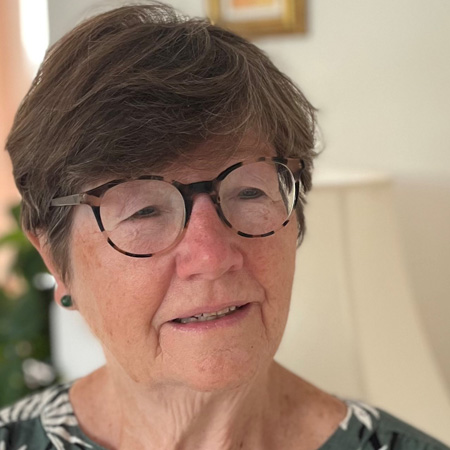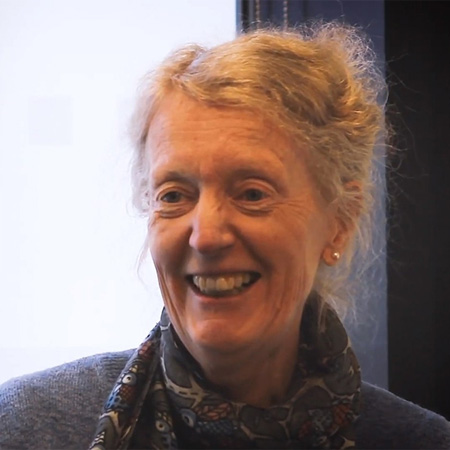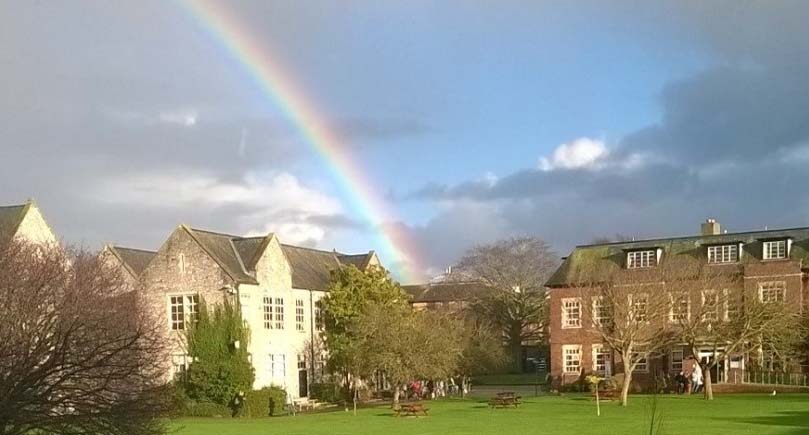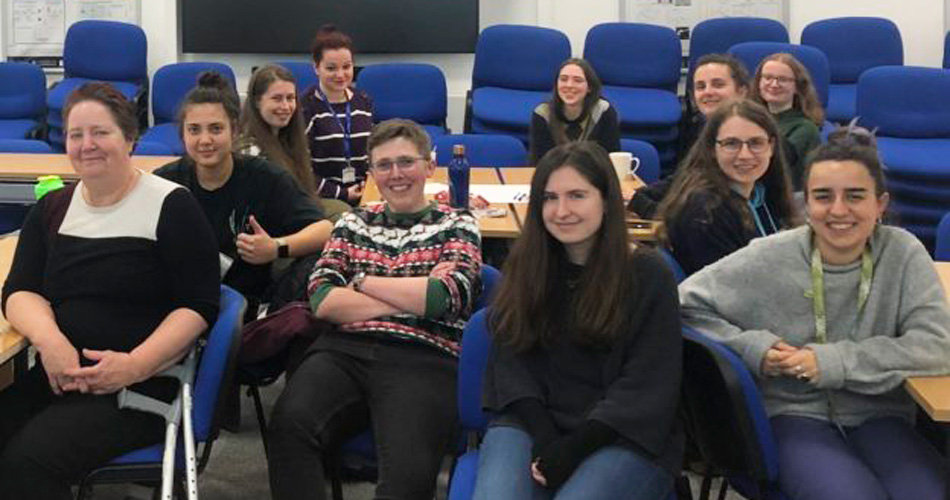- Home
- Research and Innovation
- Project ADA
- Ada Lovelace Day
- Celebrating women in STEMM
Celebrating Women in STEMM
Inspiring women
To acknowledge and celebrate the achievements and contributions of women in STEMM (Science, Technology, Engineering Mathematics and Medicine), we asked our senior team to nominate an influential woman whose contributions have inspired them personally.

Rear Admiral Grace Brewster Hopper
Grace Hopper was one of the longest serving Naval personnel of her time, and developed a fundamental programming language. Throughout her career she developed an engaging and irreverent style, and enjoyed coaching future generations.
She believed that programming should be simplified with an English-based computer programming language. Her compiler converted English terms into code.
Following a career that spanned more than 42 years she retired in 1986 and was awarded the highest non-combat decoration awarded by the Department of Defense.
Of her own achievements, Hopper noted:
"The most important thing I've accomplished, other than building the compiler is training young people... I keep track of them as they get older and I stir 'em up at intervals so they don't forget to take chances."
Rear Admiral Hopper was nominated for inclusion by the Vice Chancellor, Professor Lisa Roberts.

Elinor Ostrom
Elinor Ostrom was the first woman to receive the Nobel Prize for Economics.
Her work overturned previous theories that humans could not use shared natural resources without over-exploiting them.
She proved through field studies that with collective action, trust and cooperation communities could share natural resources such as rivers, pastures and forests productively with rules governing their use emerging over time.
These theories are important for how we face the global climate crisis we see emerging today, and offer optimism and hope.
This nomination was put forward by Professor Rajani Naidoo, Deputy Vice Chancellor for People & Culture.

Professor Hinke Osinga
In 2016, Hinke Osinga became the first ever female mathematician to be elected Fellow of the Royal Society Te Apārangi New Zealand. The RSNZ note that:
"She is at the forefront of developing and employing numerical methods for computing global objects known as invariant manifolds that are indicators of critical change or 'tipping points’."
She is known for her innovative artistic manifestations of mathematical principles including a crocheted Lorenz manifold, demonstrating how chaos arises and is organised in systems as diverse as chemical reactions, biological networks and even your kitchen mixer.
Hinke’s first lectureship was in Exeter’s Maths department. Since this time, her career highlights have also included an invitation to speak at the 2014 International Congress of Mathematicians (held in Seoul, the same one that saw the first ever female Maryam Mirzakhani win the Fields medal) and, more recently, winning the 2024 ANZIAM Medal, the most prestigious award of the Australia and New Zealand Industrial and Applied Mathematics Society.
Professor Osinga was nominated by Professor Krasimira Tsaneva (pictured on the right), Deputy Vice Chancellor for Research who says:
"Professor Osinga has been a fantastic mentor and provided me with invaluable support when I joined the University of Bristol as a lecturer back in 2007."

Professor Daphne Koller
Professor Daphne Koller was the co-founder, co-CEO, and President of Coursera, an online education platform for massive open online courses (MOOCs), which has reached over 130M learners worldwide. She was the Rajeev Motwani Professor of Computer Science at Stanford University, where she served on the faculty for 18 years, and remains an Adjunct Faculty member. She is currently the CEO and Founder of insitro, a machine learning-driven drug discovery company.
Professor Koller is interested in representation, inference, and learning in complex domains, with a focus on applications to biology and medicine. Along with Suchi Saria and Anna Penn of Stanford University, Koller developed PhysiScore, which uses various data elements to predict whether premature babies are likely to have health issues; and with Andy Beck, they developed C-Path, one of the first machine learning approaches to cancer biopsy analysis.
Daphne was nominated by Professor Tim Quine, who notes:
"I first heard and met Daphne at QS Reimagine Education in December 2014 where she talked about her inspiring vision for Coursera, one of the first massive open online course platforms, which she co-founded. Her passion for using the power of education to change lives was evident in her presentation and in the stories that she told of transformation for remote learners, accessing courses far from universities. She was a natural choice to speak to when brainstorming the education and student experience part of Strategy 2030."

Professor Joanna Haigh CBE FRS
Joanna Haigh CBE FRS co-directed the Grantham Institute- Climate Change & Environment. She is a Fellow of the Royal Society and a former president of the Royal Meteorological Society.
In 2011 she was awarded a CBE for services to Physics. Her nomination read:
"Distinguished for her scientific leadership in the area of solar influences on the middle atmosphere and for her modelling of how these effects can modulate tropospheric circulations and so propagate to Earth's surface.
"Her expertise in modelling atmospheric radiative transfer allowed the development of computationally fast but accurate radiative transfer schemes some of which are now in use by climate modelling groups across the world. By proposing and demonstrating an entirely novel mechanism for solar influence on climate she has allowed proper allowance to be made for the small and subtle, yet revealing effects."
This nomination was made by Professor Martin Siegert, Deputy Vice Chancellor, Cornwall who says: "Jo was my Co-Director of the Grantham Institute 2014-19. Jo is a tremendous scientist and I hold her in the highest possible esteem."

Professor Janice Kay CBE
Professor Janice Kay is a Special Advisor to the Vice-Chancellor who has worked at the University for nearly twenty years, in senior roles from DVC Education to Provost. In this time she has been passionate about developing the careers of women and creating a more diverse STEMM culture.
Janice is currently working with the team at Exeter to reduce the gender pay gap, the latest work in her commitment to tackling inequality. She has played a critical role in establishing the Exeter Mathematics School; a collaborative community for gifted mathematicians which is one of only two in the country. She is a Chair to the board of Trustees for University Maths Schools, a Director for Higher Futures and a Special Adviser to Kortext.
Professor Kay established herself in academia in the discipline of cognitive neuropsychology, studying the effects of brain damage, due to stroke, brain injury, tumours and disease, on perceptual, cognitive and motor skills. She developed a series of tests to enable comprehensive diagnostic testing of spoken and written language in the 1990s which continues to be used internationally as a research tool today.
In 2016 Professor Kay was awarded a CBE in the Queen’s New Years’ Honours list.
Professor Kay was nominated by Professor Sallie Lamb, PVC for HLS.

Karen Spärck Jones
Karen Ida Boalth Spärck Jones FBA (26 August 1935 – 4 April 2007) was a self-taught programmer and a pioneering British computer scientist responsible for the concept of inverse document frequency (IDF), a technology that underlies most modern search engines. She was an advocate for women in computer science, her slogan being, "Computing is too important to be left to men".
From 2008, to recognize her achievements in the fields of information retrieval (IR) and natural language processing (NLP), the Karen Spärck Jones Award is awarded to a new recipient with outstanding research in one or both of her fields
This nomination was made by Professor Aline Villavicencio, Director of the Institute of Data Science & AI who was tutored by Karen for her MPhil.

Professor Averil MacDonald OBE
Professor Averil MacDonald OBE received her OBE in 2015 in recognition of her services towards advancing women in science.
She is well known for pioneering Science Outreach through a wide range of projects designed to show people the fascination and career opportunities of science, including the well-known 'Science with Coffee and Hobnobs' – a project particularly aimed at communicating science to mums. She was subsequently invited to write the definitive guide to Science Outreach in universities by the Higher Education Academy.
Professor MacDonald’s career began teaching Physics in secondary schools, including teaching a (yet to be) Professor Nick Stone, who has nominated her as an inspirational woman in science. Following her teaching career she took a career break, studying part-time for an MA then a PhD and becoming a part-time lecturer in the Physics department at the University of Reading.
She has co-authored over 25 school textbooks, and produced a wide range of free teaching resources for schools, and is committed to engaging under-represented groups with STEM subjects.
Professor Macdonald is recognised for developing People Like Me – the revolutionary new approach to engaging girls with science and engineering. She has advised numerous universities and businesses on diversity and inclusion including NetworkRail, B&Q and MaritimeUK and has provided Unconscious Bias Training in education and business including BAESystems, Airbus and NetworkRail.

Professor Joan Chandler
Professor Dan Charman has nominated Professor Chandler. He says:
"Joan was a Professor of Sociology but in her role of Dean she was the person who inspired and encouraged me to take the plunge into leadership in Higher Education in supporting me as a new Associate Dean for Research.
In particular, she gave me the confidence to engage with and lead research strategy across a really wide diversity of disciplines, approaches and cultures in a faculty that was, at the time, largely outside my area of expertise. Ultimately this is one of the reasons that later in my career, I saw the value in interdisciplinary working for solving complex challenges and felt able to contribute to building the strong interdisciplinary ethos and structures at Exeter.
My current role as Senior Vice-President and Provost depends on embracing a wide range of perspectives and strengths, and the early work with Joan started me on that journey. My career since then would not have been nearly as interesting and fun without that early push outside my comfort zone!"

Mary Quine
Professor Tim Quine, Deputy Vice Chancellor for Research, credits the influence his mother’s career in STEMM had on his education:
"Born in 1930 in Kendal, she was the first in her family (with her twin brother) to go to University where, very unusually for a woman at the time, she studied Chemistry. She tells vivid stories of undertaking labs in her undergraduate gown and, when I was studying A-level chemistry, showed me some of her textbooks highlighting the major gaps in the periodic table at the time - only 25 years earlier.
Her experience as a teacher was pivotal in my understanding the need for social change, especially in women's rights. This was most strikingly illustrated for me by the instruction she received from her head teacher that she would need to resign her post when she became engaged to my father! Her resilience in adapting to new roles and her constancy in love and support for others are a continuing inspiration."
Resources for women working in STEMM at Exeter
These links and resources are aimed at women in Exeter working in STEMM.





